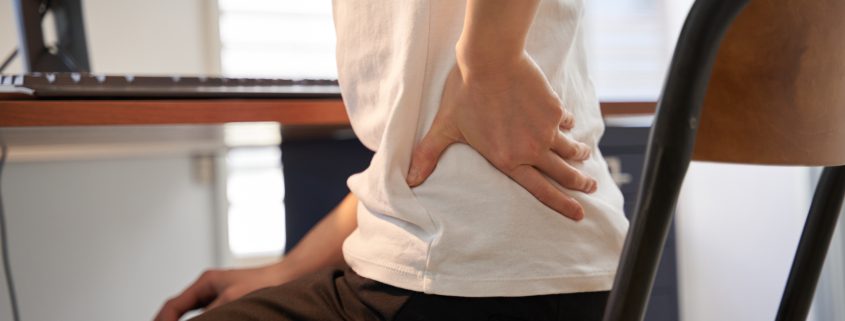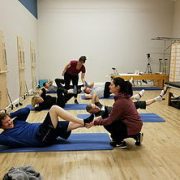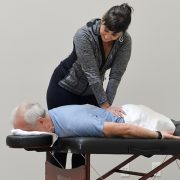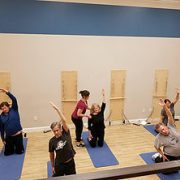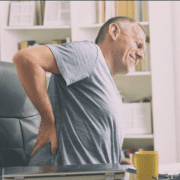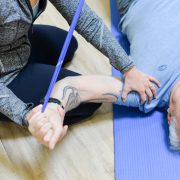Could Back Trouble Be the Root of Your Knee Pain?
One of the most important things to get right when it comes to successfully resolving knee pain is to make sure you’ve correctly identified the root cause.
Sometimes, your knee pain is due to a problem within your knee joint – such as with arthritis or torn cartilage. But other times (and more often than you think) – the source of your knee pain can be coming from elsewhere – such as your lower back.
Did you know that 25% of the time, your knee pain is due to a problem within your back – even when you don’t have any back pain?
One of the tell-tale signs you’ve misidentified the root source of your knee pain is that it doesn’t go away after trying everything that “should” help it. Perhaps you’ve tried ice, heat, pain medication, foam rolling, strengthening, stretching – even physical therapy – but no matter what – your knee pain just won’t seem to go away. If the root source of your knee pain is within the knee joint – and you address your joint with any combination of the above mentioned interventions – it will help.
But how do you figure out if the root cause of your knee pain is in your lower back?
Pay attention to how your knee pain behaves. When your lower back is the source, you’ll typically have difficulty pinpointing exactly where your knee pain is. It may feel dull, achy, or even numb at times. It might move around, or perhaps travel up or down your thigh. One day your knee might feel great, and you’ll think the problem is finally gone – while other days it could feel excruciating. When your knee pain is more vague and moves around a lot, or it comes and goes throughout the day for no apparent reason, there is a good chance that your back is the root source. With true knee pain, you can usually point to where it hurts and describe pretty well when and where it will bother you.
So how does a misdiagnosis like this even happen?
One of the biggest culprits is imaging. If you’re over age 40, and you get an X-ray or MRI taken of your knees, there is a 60-80% chance they’ll find arthritis or meniscus (cartilage) tears. Studies have shown that arthritic changes and meniscus tears are a normal part of aging, so they will show up on your images whether you have any knee pain or not. While I have many stories about people getting the root cause of their knee pain wrong – one in particular stands out in my mind that I want to share with you.
I remember a 56 year old tennis player who had knee surgery to “clean out” some wear and tear from arthritis and a meniscus tear. This was after trying several months of physical therapy that had “failed”. She was told the procedure was routine and that her recovery would be quick. Sadly, after three months, she was still limping around and her knee was feeling worse than pre-surgery. The pain had moved, it spread more to her thigh now and it ached a lot more at night and when she wasn’t moving around. She could play tennis, but her knee felt more tired now and her leg would just ache. When she came to me for a second opinion, the very first thing I did was screen her lower back for problems. She thought this was weird at first because she had never had any real back pain. But it turns out that when we started moving her back around and testing it – her knee pain reacted to this. The root cause of her knee pain was actually in her spine. So it made sense all the physical therapy she had for her knee, and the knee surgery didn’t work.
If you’ve been suffering from knee pain for a while, and typical treatments don’t seem to be working, it’s worth considering that the root source of your problem could be your lower back.
If your knee pain seems to come on slowly or out of nowhere, if you have trouble pinpointing exactly where the pain is, if it moves around and changes from day to day, or if it runs up or down your thigh – it’s worth getting your lower back checked by a mechanical pain specialist before give up all together – and especially before jumping into any surgery or procedure on your knee.
Dr. Carrie Jose, Physical Therapist and Pilates expert, owns CJ Physical Therapy & Pilates in Portsmouth and writes for Seacoast Media Group. To get in touch or sign up for her upcoming Masterclass for Knee Pain Sufferers CLICK HERE.

